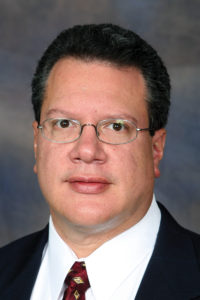With 2017 on the horizon and 2016 a mixed-bag, it’s likely 2015 will start being referred to as the “good old days,“ particularly from the divestment side, as the transactions market continues to experience selling-price declines across the board, with fewer hotels changing hands overall, according to Portsmouth, NH-based Lodging Econometrics (LE). LE reported the volume of hotel sales and property transfers continued downward for the fifth consecutive quarter through Q3. Data indicated 977 hotels sold in the previous rolling four quarters compared to 1,616 year-over-year, a decrease of 639 hotels resulting in a 40% drop in volume.
The average selling price per room (ASPR) for the period was $136,934, down from the peak of $156,471, a 13% decline YOY, it noted. LE data show Orlando had the most sales, 22 hotels and an ASPR of $79,054. In succession were Atlanta (20 hotels at $88,764 ASPR), New York City (17 hotels at $460,565 ASPR) and Tampa (16 hotels at $160,239 ASPR). Fifteen hotels per market were sold in Boston, Seattle and Phoenix, with an ASPR of $331,249; $223,530; and $139,701, respectively.
JLL, meanwhile, tagged U.S. hotel transaction volume in Q3 as having “experienced robust growth compared to the level of deal activity recorded for the prior quarter and was above the current cyclical average.” It cited Anbang Insurance Group’s acquisition of Strategic Hotels & Resorts largely responsible for the quarter’s surge in activity. It also noted “solid” single-asset sales activity in both secondary and primary gateway markets.
So what’s happening in the trenches? Hotel Business recently caught up with some leading players within the transactions arena to get their thoughts. Sharing insights are Michael Cahill, founder/CEO, HREC-Hospitality Real Estate Counselors; Teague Hunter, president, Hunter Hotel Advisors; and Steve Post, president, Amber Hotel Co.
How would you characterize the 2016 transactions market and what can we expect next year?Cahill: This was a year of transition seeking clarity, with slightly lower overall transaction volume and featuring fluid re-pricing of hotel assets. In 2017, overall sales volume should be flat to 2016 but feature a normalized bid-ask spread on marketed lodging properties. Brokers will see a higher sell-through ratio on their listings.
Hunter: Single transactions were steady, while portfolio transactions were down. I’d expect Q1 to pick up as investors feel more certainty about what is going to happen to rates and what the “Trump effect” is. Depending on how Q1 goes, transaction volume could pick up in the second half if conditions continue to improve.
Post: Overall, the transactions market has been robust as investors see hospitality assets as generally stable investments. We expect in the next year to see more properties hit the market as owners begin to see revenues level out after 80 straight months of national RevPAR growth. We believe it is a good time to sell if owners wish to maximize the value of their properties for the current financial cycle.
Who’s got the upper hand heading into 2017: buyers or sellers?
Cahill: I do not think it will be either in the alpha position. The coming year will be more gentle and harmonious; a win-win for both sides.
Hunter: Buyers have a slight advantage now; however, sellers of newer, premium-branded, urban hotels in larger MSAs can demand a premium.
Post: …It’s a seller’s market heading into 2017 [due to]readily available financing, overseas investment and high revenue growth. In addition, the most prevalent factor is the lack of competing inventory, especially in the major metropolitan areas. This causes investors to pay higher prices for those few properties in primary markets, and encourages investment in secondary and tertiary markets.
What hotel segments do you expect will exhibit the greatest churn?
Cahill: In terms of number of properties sold, assets sold over $30 million will slow down. This will be offset by stable-to-increasing volume in the under-$20-million category.
Hunter: Select-service in secondary markets will continue to be the most transacted. Many of the REITs and institutional groups are pruning the bottom of their portfolios, which includes the tertiary markets and older select-service assets. Smaller regional investors are selling older assets in secondary and tertiary locations and either building or buying newer properties with better brands near active commercial pockets.
Post: We expect to see the midscale and economy sectors exhibit the greatest churn. Just due to the nature of the business, these properties have higher turnover than larger investment properties.
What do you see people coming to buy/invest in?
Cahill: Buyer interest continues to be strong for all categories and types, if priced appropriately. Upscale select-service is still highly sought after. Upscale full-service with a strong value-add component will sell, if the all-in buyer cap rate is reasonable.
Hunter: Premium select-service in top 25 markets, $100-plus RevPAR, urban, relatively new-build. That profile will continue to command a premium. Markets outside of the top 25 that are expanding at significant rates also will be hotbeds of investment activity.
Post: Most investors want top-25 markets, cash-flowing properties, with upper-midscale to upper-scale branding. While these properties are desirable, they are not available, especially not in this current market climate. Most owners are not willing to sell these properties as revenues continue to stay strong. Sellers also are faced with the problem of finding a replacement property once they sell.
Words of advice for 2017?
Cahill: Sellers: An optimum year to move non-strategic hotels, at reasonable pricing, into the hands of buyers better suited for ownership and management of the assets. Buyers: A solid year to purchase hotels at economically justified pricing. Be selective, but move quickly for assets that you like.
Hunter: This is still a street-corner business… Study each deal based on its own merits. For sellers, do your due diligence ahead of taking a property to market. For a successful process, consult with a broker, order the PIP, price the PIP, talk to your brand about license terms, know your tax assessment and try to minimize surprises.
Post: For sellers, it’s a great time to sell to take advantage of high revenues, available financing, low inventory and overseas investment. For buyers and investors, be more open in what you are willing to invest in. Everyone would like to add a cash-flowing Marriott in a major market to [a]portfolio; however, it’s unlikely to be available. There are deals that make sense in secondary and tertiary markets.




